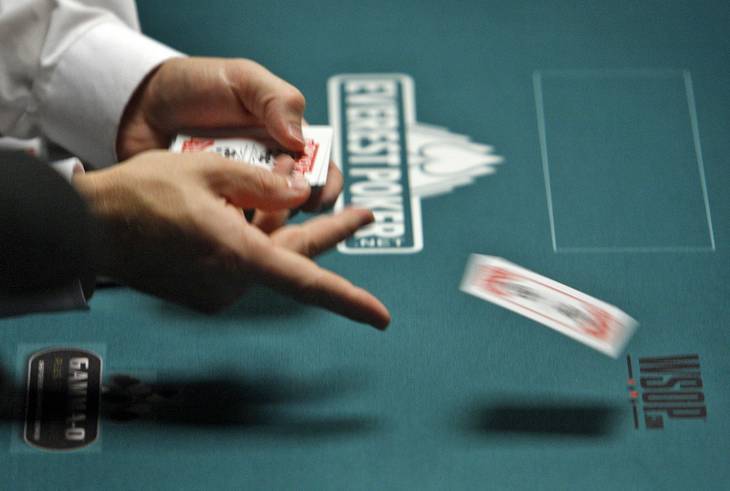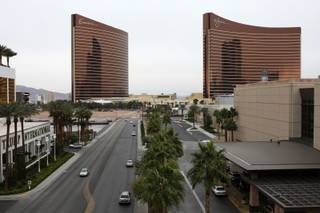Related coverage
The legal battle over tip-sharing at Wynn Las Vegas is turning into a community free-for-all, with religious and progressive groups and another union now weighing in against the policy.
Wynn has appealed to the Nevada Supreme Court last year's ruling by a Clark County District Court judge finding Wynn's required sharing of casino dealers' tips with supervisors violates a state law.
The case is in the briefing stage at the Supreme Court, and the court has permitted several interested parties to participate by filing advisory friend-of-the-court briefs.
The latest to file briefs, or to request permission to do so, on Monday were groups called Interfaith Worker Justice, Churches of Southern Nevada, the Progressive Leadership Alliance of Nevada (PLAN) and Amalgamated Transit Union Local 1637, which represents more than 900 employees in the local bus system. They're all represented by Henderson attorney Christian Gabroy.
"Wynn’s use of the dealers’ tips to compensate the dealers’ non-tipped or nominally tipped supervisors, whom the Wynn is neglecting to adequately compensate itself, is immoral, improper, and not in compliance with (state law), particularly in light of the great wealth possessed by the Wynn and its clear ability to adequately compensate those supervisors itself," the religious groups' brief says. "Such actions by the Wynn are not in compliance with Judeo-Christian values or any faith-based value system that respects the dignity of those who must labor to provide for the needs of themselves and their families."
The PLAN and Transit Union brief charged: ''Reversing the district court will result in a substantial and inequitable shift of wealth from low-wage workers, who are struggling to support themselves and their families, to already highly profitable businesses that can, and should, bear the burden of adequately compensating their non-tipped or nominally tipped employees.''
The Transport Workers Union, which represents Wynn and Caesars Palace dealers, earlier filed its own brief opposed to the tip-sharing program.
Wynn, however, says only a minority of dealers have complained about the tip-sharing policy and it has picked up support in the case from the powerful Culinary Union, which says tip-sharing arrangements are commonplace and that the state shouldn't meddle with them.
Also supporting Wynn are the casino industry through the Nevada Resort Association, the Nevada Restaurant Association and Don Laughlin's Riverside hotel-casino, where supervisors have long shared in dealers' tips.
"How tips are pooled — whether the debate is about a (casino) boxman or a barman — is a business decision that employers should have the freedom to make and experiment with," says the brief by the industry associations and the Laughlin casino. They're represented by law firms including the Las Vegas office of Lewis and Roca LLP.
"Whether by implementing an incentive-based compensation structure like tip pools, stock options, or profit sharing; offering alternative work schedules; setting a company-wide policy limiting email correspondence on off hours; or any number of unique solutions, companies need to be creative in attracting and retaining high-performing employees, reducing turnover and in motivating their workers to deliver better service," the industry brief said.
When Steve Wynn brought casino dealer/supervisor tip-sharing to the Strip in 2006, he said the policy was aimed at improving customer service by motivating supervisors to better serve gamblers and to make it easier to recruit bosses from the dealer staff.
Clark County District Court Judge Kenneth Cory struck down the policy last year, finding it conflicted with a Nevada law allowing the sharing of tips by workers in the same job classification but barring companies from directly benefiting from tip-sharing pools.
In this case, an attorney for the dealers says Wynn's direct benefit is that it doesn't have to pay the supervisors some $5 million per year being taken from the dealers.
At the Supreme Court, oral arguments in the appeal have not yet been scheduled. That means a ruling likely won't be issued until well into 2013 or later.

